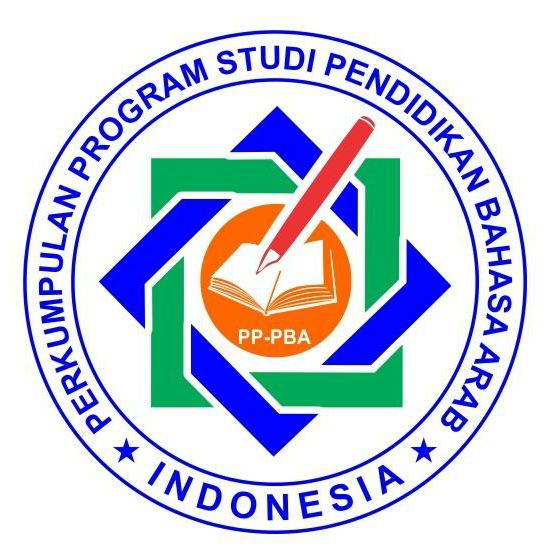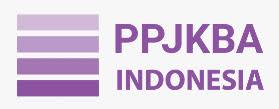Fa’āliyyah Barnāmaj Ma’rifī Sulūkī li Khafđi Mustawiyāt al-Kurtizūl Lada Țālibāti al-Śaffi al-Śānī ‘Asyar
فاعلية برنامج معرفي سلوكي لخفض مستويات الكورتيزول لدى طالبات الصف الثاني عشر
DOI:
https://doi.org/10.37680/aphorisme.v6i1.7816Keywords:
Cognitive Behavioral Program, Cortisol Levels, Psychological Stress, Therapeutic Intervention, 12th Grade Female StudentsAbstract
The aim of the current research is to examine the effectiveness of a cognitive-behavioral program in reducing cortisol levels among 12th-grade science stream female students. The researchers adopted the experimental method, as it is appropriate for the topic of the research. The study sample consisted of 60 female students from secondary schools in the Faida area, Dohuk Governorate. The sample was divided into two groups: an experimental group of 30 students who underwent the cognitive-behavioral program, and a control group of 30 students who did not receive any intervention during the implementation of the program. The participants were selected using a purposive sampling method. To achieve the research objective, the researchers formulated two main hypotheses: first, there is no statistically significant difference at the (0.05) level between the mean scores of cortisol level reduction in the experimental and control groups, and second, there is no statistically significant difference at the (0.05) level between the pre-test and post-test scores in reducing cortisol levels among the experimental group. The study relied on salivary cortisol measurements to assess psychological stress levels, and the cognitive-behavioral program was prepared by the researchers. The psychometric properties of the biological measurements (validity, reliability, measurement accuracy, result reliability) were established. The measurements were then applied, and data were collected and analyzed statistically using the Statistical Package for the Social Sciences (SPSS). The research concluded that there is a significant difference between the mean scores of the experimental and control groups in favor of the experimental group in reducing cortisol levels. The results also showed a statistically significant difference between the pre-test and post-test scores of the experimental group in favor of the post-test in terms of reducing cortisol levels.
References
العدوي، دعاء محمد، وأحمد، جمال شفيق. (2018). الضغوط النفسية لدى طالبات المرحلة الثانوية وعلاقتها ببعض المتغيرات البيئية والاجتماعية: مجلة العلوم البيئية، المجلد الثالث والاربعون، الجزء الأول، جامعة عين شمس.
بفديل، مسعودة. (2023). الضغط النفسي وعلاقته بالتحصيل الدراسي لدى طلبة البكالوريا: دراسة ميدانية على عينة من طلبة بن حمادي حمو اوقروت، جامعة أحمد درايعية ادرار.
تجاني، عبدالله محمد حسن. (2018). فاعلية برنامج معرفي سلوكي في معالجة اكتئاب لدى مرضى الفشل الكلوي المزمن: خرطوم السودان.
جواد، السعيد. (2014). أستراتيجيات مواجهة الضغوط النفسية عند الراشد المصاب بالقصور الكلوي المزمن والخاضع لتصفية الدم دراسة عيادية: كلية العلوم الإنسانية والاجتماعية مسار علم النفس، جامعة محمد خيضر بسكرة.
الحسيني، رباب عبدالكريم. (2018). التقييم المعرفي للأحداث الضاغطة وعلاقته بالتكيف النفسي: دراسة ميدانية، جامعة بغداد.
سهيل، تامر فرح. (2011). أثر برنامج معرفي/سلوكي لخفض القلق لدى الاطفال المصابين بمرض الثلاسيميا: جامعة القدس المفتوحة-فلسطين.
شميلة، نجاة موسى الفيتوري. (2023). فاعلية برنامج معرفي سلوكي في خفض بعض المشكلات السلوكية لدى تلاميذ مرحلة التعليم الأساسي بمدينة زليتن أنموذجا: مجلة أصالة، كلية التربية زليتن. الجامعة الأسمرية الإسلامية.
شويطر، خيرة. (2017). أستراتيجيات مواجهة الضغوط النفسية لدى الأمهات على ضوء متغيري الصلابة النفسية والمساندة الاجتماعية دراسة ميدانية على عينة من ولاية وهران: رسالة دكتوراه، وهران-جامعة وهران2.
صحراوي، أمينة، وعبايدية، بسمة. (2016). الضغط النفسي وعلاقته بدافعية الإنجاز لدى الطالب الجامعي: دراسة ميدانية بقسم علم النفس وعلم الاجتماع، جامعة 8ماي 1945 قالمة.
عبدالله، تجاني محمد حسن. (2018). فاعلية برنامج معرفي سلوكي في معالجة اكتئاب لدى مرضى الفشل الكلوي المزمن: خرطوم السودان.
عمر، بشرى خطاب. (2020). أثر برنامج معرفي سلوكي قائم على نظرية ميكينبوم في خفض الحساسية الانفعالية السلبية لدى طالبات المرحلة المتوسطة: مجلة البحوث التربوية والنفسية، العدد 67، جامعة تكريت-العراق.
قنديلجي، عامر إبراهيم. (2012). منهجية البحث العلمي: دار اليازوري العلمية للنشر والتوزيع، عمان.
ماهر، سكران. (2006). أستخدام العلاج المعرفي السلوكي في خدمة الفرد لتنمية المهارات الاجتماعية للأطفال: مجلة كلية التربية، مجلد1، عدد35، ص66.
مشري، سلاف. (2016). الضغط النفسي في المجال المدرسي: المفهوم والمصادر وأستراتيجيات المواجهة: مجلة كلية التربية للعلوم التربوية والإنسانية، العدد 29، جامعة الوادي-الجزائر.
نادر، علاء هيثم. (2014). فاعلية برنامج تدريبي قائم على علاج السلوكي المعرفي في تنمية المهارات الاجتماعية لدى الاطفال ذوي صعوبات التعلم: رسالة ماجستير، جامعة دمشق.
هوادف، شكيب، هشام وحميدي. (2020). أساليب الأسترخاء وتسير التوتر النفسي أثناء المنافسة: مذكرة لنيل شهادة الماجستير، كلية علوم والتقنيات النشاطات البدنية والرياضية، جامعة الجيلالي بونعامة.
Beck, A.T. (2001). Cognitive Therapy of Depression. Guilford Press.
Dobson, S. Keith. (2018). Historical and Philosophical Bases of the Cognitive-Behavioral Therapies: this is a Chapter Excerpt from Guilford publications Handbook of Cognitive-Behavioral Therapies. Fourth Edition.
Fournier, Carine. (2014). Points Traitement Psychologiques de Linsomnie:(Traduit: Renard Stephane). Belgique. Pierre Mardaya.
Keith, S. (2010). Cognitive-Behavioral Therapy: Basics and Beyond. Guilford Press.
Lai, M., & Herman, J.P. (2009). CNS-HPA Axis Interactions: Regulation by Stress and Implications for Psychiatric Disorders. Brain Research Reviews, 62(2), 127-139.
Lazarus, R., & Folkman, S. (1984). Stress appraisal, and coping. Springer.
Lochman, E. (2008). Cognitive behavioral therapies. In: Rutters Child and Adolescent Psychiatry (5), 1026-1045.
McEwen, B.S. (2007). Physiology and Neurobiology of Stress and Adaptation: Central Role of the Brain. Physiological, 87(3), 873-907.
Morin, C. & Belleville, G. (2015). The Effects of a Cognitive Behavioral Therapy for Insomnia on Depressive and Anxiety Symptoms in Order Adults: Behavior Research and Therapy, 72, 63-71.
Powers, T. (2012). Internet-Based Cognitive Behavioral Therapy Designed for Social Anxiety Disorder: A Dissertation Presented in Partial Fulfillment of the Requirements for the Degree Doctor of Philosophy, Capella university.
Selye, Hans. (1981). The Stress Concept Today in I.L Schlesinger et, AT(EDS), Handbook on stress and anxiety. San Francisco.
Stuke, H & et al. (2012). Entstehung von Depression in Nervenarzt 2011: Behandlung. Forschungsbericht. May-Planck Institut fur Psychiatrie.
Thoma, M.V., Rohleder, N., & Rohner, S.L. (2013). Acute Stress Responses in Salivary Alpha-Amylase, Cortisol, and Immunoglobulin A and Their Relationships to Psychological and Physiological Measures. Psychoneuroendocrinology, 38(4), 540-547.
Troy, A.S., Wilhelm, F.H., Shallcross, A.J., & Mauss, I.B. (2010). Seeing the Silver Lining: Cognitive Reappraisal Ability Moderates the Relationship Between Stress and Depressive Symptoms. Emotion, 10(6), 783-795.
Unger, J.B. (2004). Cognitive-Behavioral Therapy for Anxiety Disorders in Youth. Journal of Clinical Child & Adolescent Psychology, 33(2), 342-351.
Downloads
Published
Issue
Section
License
Copyright (c) 2025 Bareen Sherwan Omer, Arian Tatar Naamat

This work is licensed under a Creative Commons Attribution-NonCommercial 4.0 International License.
Authors who publish with this journal agree to the following terms:
Authors retain copyright and grant the journal right of first publication with the work simultaneously licensed under a Creative Commons Attribution-NonCommercial 4.0 International License that allows others to share the work with an acknowledgement of the work's authorship and initial publication in this journal.
Authors are able to enter into separate, additional contractual arrangements for the non-exclusive distribution of the journal's published version of the work (e.g., post it to an institutional repository or publish it in a book), with an acknowledgement of its initial publication in this journal.
Authors are permitted and encouraged to post their work online (e.g., in institutional repositories or on their website) prior to and during the submission process, as it can lead to productive exchanges, as well as earlier and greater citation of published work.




.jpg)


